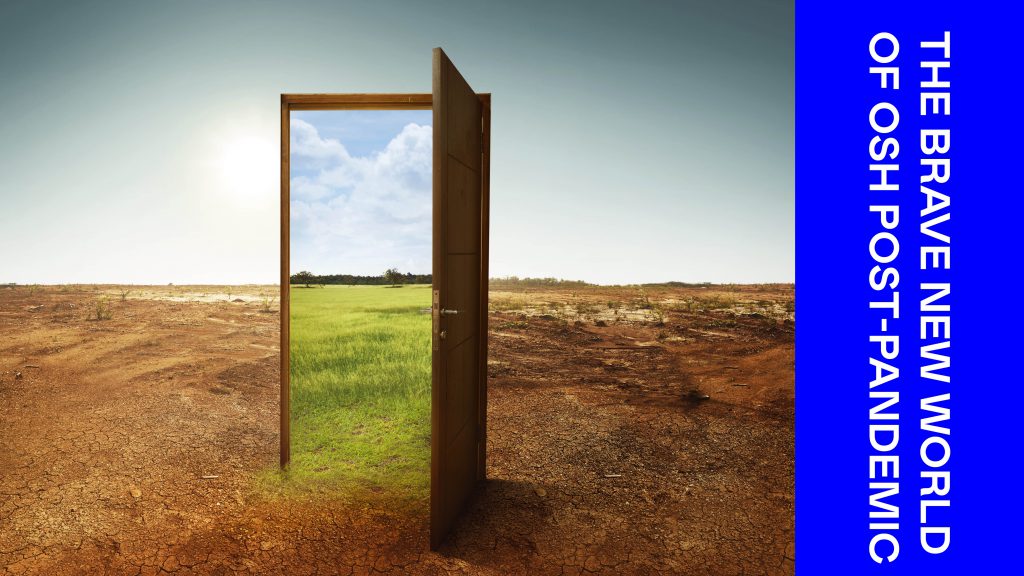To date, just over 3 million people have died globally from the COVID-19 virus, a staggering number. Yet approximately 2.78 million people die annually from workplace-related accidents and ill health.
How can we make those numbers more comprehensible?
It’s about one person every ten seconds—every year.
The pandemic of 2020 has highlighted collective loss and the importance of OSH. With its quarantine regulations and necessary “groupthink,” it also has ushered in comparisons to dystopian novels like 1984 and Brave New World. The latter famously borrows its title from Miranda’s naïve words in Shakespeare’s The Tempest: “How beauteous mankind is! O brave new world, that has such people in’t.”
While the lines are ironic (Miranda soon has a rude awakening), it reveals a truth we’ve experienced internationally. The pandemic has exposed both a dangerous potential future as well as “how beauteous mankind is.”
This reflection presents an opportunity to think differently about implementing health and safety in the workplace and the world: it must be proactive rather than reactive, and integrated in our organisational cultures, rather than an ‘optional add-on.’ While workplaces were unprepared for the shockwaves of COVID-19, it has offered lesssons for OSH leadership that can improve future crisis response and mitigate the annual casualty statistic that nearly equals the toll of the pandemic.
2020 has taught a number of vital lessons, including:
- Workers are assets, rather than liabilities. Organisations have seen that investing in the health, well-being and development of workers means investing in a more resilient business overall. Workers can be viewed as sources of solutions, not simply potential risks.
- Adaptation is vital. Manufacturing companies that pivoted to PPE production and were able to implement new OSH protocols fared better than those unable to respond quickly to new conditions. Technological advancement and regulatory change are transforming the corporate landscape faster than any time in previous history, and the pandemic conditions have only accelerated this evolution.
- Leadership will remain the key to healthy organisations, and leaders must learn to inpsire and affect behavior change remotely. Workplace safety is the by-product of decisions made by leaders, their missions and corporate strategies.
How can we distill these lessons into a a potent force for positive future change? The learnings must be integrated into organisational culture.
CEDEP’s Leadership & Safety Culture Programme offers an immersive experience that introduces participants to a new dimension of thought leadership that mixes cutting-edge science and research with deep research and practical application. Applying lessons from workplace crises small and large, the programme enables OSH leaders to create a “culture of care” that can transform your workplace.
The concrete takeaways from the CEDEP Leadership & Safety Culture Programme include how to:
- Become more aware and attune to risk
- Reduce workplace accidents
- Increase team motivation
- Learn how to positively influence people
- Lead forward with the right mindset
- Create a ‘culture of care’
- Enhance productivity
With these tools, a concerted mindset shift will occur, where forward-looking practitioners and leaders successfully convince organisations and industry sectors that efforts must be realigned to the input activities that generate the outcome of a safe workplace. These people will focus on creating safety rather than preventing accidents, realizing a “Brave New World” of proactive leadership and culture change. This future will be critical not just to preventing casualties but creating a safe, healthy and crisis-resilient workplace.
Learn more about our Leadership & Safety Culture programme here or read our brochure here
Get more information about our Programme Director Andrew Sharman
For more information about the programme and the dates of the next sessions, please contact Muriel Pailleux at muriel.pailleux@cedep.fr
